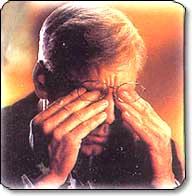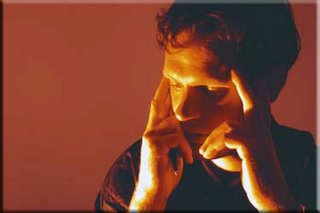Link page
1PharmacyGuide.com - The most extensive online pharmacy guide on the internet. Free access.
CheapestViagraWorldwide.com – Find the lowest price on Viagra, Cialis, Levitra, Propecia. Compare online pharmacies.
AnyMedicineOnline.com – Over 1000 medicines with prices from leading online pharmacies
RECOMMENDED ONLINE PHARMACIES
AllNaturalPharmacy.com
Allcheapdrugs.com
Allcheappills.com
Alldrugspharmacy.com
Discreetpilldelivery.com
Horizonpharmacy.net
Rx-freepharmacy.com
OTHER MEDICAL RESOURCES
ALL-ABOUT-ACCUTANE.COM
ALL-ABOUT-ALPRAZOLAM.COM
ALL-ABOUT-ATARAX.COM
ALL-ABOUT-ATIVAN.COM
ALL-ABOUT-CARISOPRODOL.COM
ALL-ABOUT-CIALIS.COM
ALL-ABOUT-DARVOCET.COM
ALL-ABOUT-DARVON.COM
ALL-ABOUT-DIAZEPAM.COM
ALL-ABOUT-DORMICUM.COM
ALL-ABOUT-FRISIUM.COM
ALL-ABOUT-KLONOPIN.COM
ALL-ABOUT-LEVITRA.NET
ALL-ABOUT-LORAZEPAM.COM
ALL-ABOUT-MERIDIA.COM
ALL-ABOUT-MOGADON.COM
ALL-ABOUT-NEXIUM.COM
ALL-ABOUT-PROPECIA.COM
ALL-ABOUT-REDUCTIL.COM
ALL-ABOUT-RITALIN.COM
ALL-ABOUT-ROACCUTANE.COM
ALL-ABOUT-SOMA.COM
ALL-ABOUT-ULTRAM.COM
ALL-ABOUT-VALIUM.COM
ALL-ABOUT-VIAGRA.NET
ALL-ABOUT-XANAX.COM
ALL-ABOUT-ZOLOFT.COM
ALL-ABOUT-ZOLPIDEM.COM
ALL-ABOUT-ZYBAN.COM
ALL-ABOUT-BUSPAR.COM
ALL-ABOUT-CELEBREX.COM
ALL-ABOUT-DEPAKOTE.COM
ALL-ABOUT-EFFEXOR.COM
ALL-ABOUT-KLONOPIN.COM
ALL-ABOUT-LANOXIN.COM
ALL-ABOUT-LIPITOR.COM
ALL-ABOUT-PAXIL.COM
ALL-ABOUT-PREVACID.COM
ALL-ABOUT-PRILOSEC.COM
ALL-ABOUT-PROSCAR.COM
ALL-ABOUT-RESTORIL.COM
ALL-ABOUT-RIVOTRIL.COM
ALL-ABOUT-VALPRO.COM
ALL-ABOUT-VALTREX.COM
ALL-ABOUT-ALLERGY.NET
ALL-ABOUT-ANXIETY.NET
ALL-ABOUT-BPH.COM
ALL-ABOUT-CHOLESTEROL.NET
ALL-ABOUT-ED.NET
ALL-ABOUT-EPILEPSY.COM
ALL-ABOUT-ERECTILEDYSFUNCTION.COM
ALL-ABOUT-HAIRLOSS.COM
ALL-ABOUT-HIGHBLOODPRESSURE.COM
ALL-ABOUT-INSOMNIA.NET
ALL-ABOUT-MENSHEALTH.COM
ALL-ABOUT-WOMANSHEALTH.COM
ALL-ABOUT-WEIGHTLOSS.NET
ALL-ABOUT-BIRDFLU.COM
USEFUL BLOGS
http://erection-dysfunction.50megs.com/main.html
http://www.freewebs.com/allmeds/
http://allmedsbanners.bravehost.com/
http://internationalpharmacyblog.blogspot.com/
http://anxietyreliefblog.blogspot.com/
http://insomniatreatment.blogspot.com/
http://weightlossaid.blogspot.com/
http://xanaxonline.blogspot.com/
http://anxietytreatment.moretoblog.com/
http://ambienonline.moretoblog.com/
http://weightloss.moretoblog.com/
http://www.xrblog.com/Allmeds/
http://valiumonline.livejournal.com/
http://buyvaliumonline.iblogs.com/
http://buyvaliumonline.iblog.com/
http://buyvaliumonline.blogsource.com/
http://blogpage.com/UserPage/buyvaliumonline/
http://buyvaliumonline.blogdrive.com/
http://www.xanga.com/buyvaliumonline
http://www.freeopendiary.com/entrylist.asp?authorcode=D625387
http://mrhealth.livejournal.com/
http://valiumonline.iblogs.com/
http://valiumonline.iblog.com/
http://blogpage.com/UserPage/valiumonline/index.asp
http://valiumonline.blogdrive.com/
http://www.xanga.com/valiumonline
http://www.freeopendiary.com/entrylist.asp?authorcode=D625382
http://valiumonline.myblog.com/
http://valiumonline.blogsource.com/
http://www.u-blog.net/crmercadeo
http://1cialis.livejournal.com/
 Anxiety disorders
Anxiety disorders

